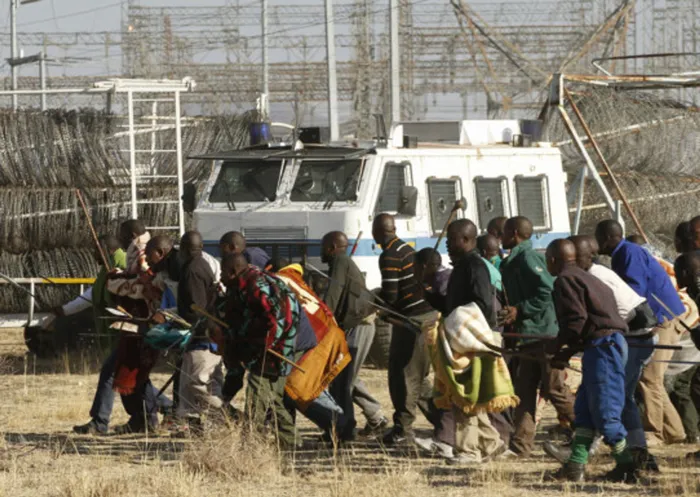SAHRC defends Marikana probe

File photo: Mineworkers at Lonmin's Marikana mine. File photo: Mineworkers at Lonmin's Marikana mine.
Johannesburg - The SA Human Rights Commission (SAHRC) has defended its decision to investigate the Marikana tragedy.
It said on Thursday it was acting within its constitutional mandate.
In terms of the Constitution, the SAHRC had to investigate and report on the observance of human rights, and to take steps to secure appropriate redress where human rights had been violated.
“The SAHRC is therefore far from wasting resources...
“The SAHRC is an independent Chapter Nine institution subject only to the Constitution and the law,” it said.
It had recently spoken to the parliamentary portfolio committee on justice, where members had expressed concerns about a possible duplication of Marikana probes.
The committee acknowledged the commission's independence, but was concerned about potential conflicts of interests, wasteful costs incurred by duplicating investigations, and the scope of the SAHRC commission.
President Jacob Zuma has also set up a commission of inquiry into the Marikana violence that has claimed 45 lives so far.
The SAHRC said the concern that it would damage the ability of witnesses to give evidence, and that the investigation could lead to conflicting versions, was without foundation.
“We have indicated to the portfolio committee that we will present our findings before the Farlam Inquiry 1/8appointed by Zuma 3/8 and it is for the inquiry to decide on the quality of the evidence before it,” it said.
The SAHRC would focus on possible human rights violations and submit its findings to the inquiry.
“It is within the mandate of any commission of inquiry to decide what is interfering and what is not.”
The SAHRC's investigation was launched at the request of a non-governmental organisation, which complained that the victims' right to life had been infringed upon.
It was obliged to address the complaint and the prima facie rights violation to which it referred.
“We feel the objections are based on a misunderstanding of what the SAHRC is in fact doing in relation to the Marikana situation and a misunderstanding of its powers and mandate as provided for by the act of Parliament,” it said.
It was not conducting an independent investigation and would not make a final, independent finding on whether rights were violated.
Instead, it was bringing proceedings in its own name, on behalf of individuals whose rights were violated.
This fell squarely within its powers, duties and functions.
A month ago, 34 people were shot dead by police at Lonmin's Marikana mine. Another 78 people were injured.
The violence was apparently sparked by rivalry between two unions. - Sapa